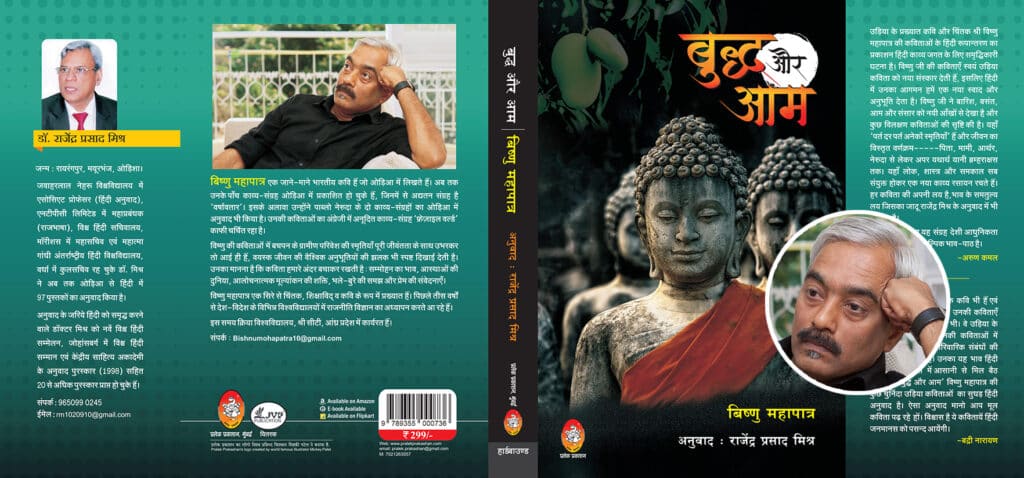What is the underlying idea that binds this selection of poems together in Buddha aur Aam?
The title of this poetry volume is taken from a poem evocative of the subtle and sublime force of personal faith and devotion, kept alive in times of great disenchantment. The poems are largely taken from the first four volumes of my poetry. Many of my poems seek to re-enchant our world, by reflecting on contemporary realities through a gaze that seeks out nature’s mystery in the most unlikely of places. Memory as a weave of remembering and forgetting, as a means of understanding our place in time, is also a recurring theme in many of my poems.
What is your relationship with the Odia language and why is writing in it, particularly special?
Odia is my mother language. It is not just the language that I learnt to speak, read and write in first, but it is also my emotive language, the language of my memory and also the language of my sensorium.
The metaphors and the presence of nature that dominate my poetry were imprinted in memory from my childhood; the feel of wet leaves under my feet at the riverbank, the creaking of insects at night, the light of glow worms, the songs of jatras, the lament of the cuckoo, all of these were carved into my imagination in the language of the land where I was born.
Writing poetry in Odia and doing my social science and academic work in English has given me two vast and diverse landscapes which speak to each other, and enrich each other. Each language carries with it its own life-world, its own inner resources. Even after living more than four decades outside Odisha, my love for Odia and its rich tradition of literature, lives and thrives inside me. Writing poetry in Odia enlivens a connection between place and time, and moves me beyond ‘here’ and ‘there’, ‘now’ and ‘then’, to the unknown place where metaphors take shape and make meaning.
How do you work closely with a translator in a manner that the spirit and essence of your work is captured in its truest form? Why is that process so important?
I am also a translator, although I rarely translate my own poetry. I have translated and published Pablo Neruda’s poetry into Odia and my translations of Rilke’s poetry is to be published this year. I believe that translation is also a form of interpretation, of transposition, and that the translator carries from one language into another not only the essence of the poet’s expression, but also a little bit of of themselves. I tend not to interfere much with the translator’s work as the process of translation has its own integrity. I am grateful to my translator Dr Rajendra Prasad Mishra for his careful and dedicated attention to carrying my voice along with his into the Hindi translation.
In the world we live in, why is reading poetry crucial?
For me, poetry has always been more than a form. It is a way to un-conceal the world, without revealing all of its mystery. Recently, some of my poems were published in an anthology ‘Singing in the Dark’ – a collection of poems from across the world written during the pandemic related lockdown. What were poets writing about during these uncertain times? Why are we reading more poetry about this time? Poetry has the capacity to hold that which cannot be understood, while signalling us towards a multitude of possibilities. A poet’s expression is always an indication, a nudge, a glimpse towards a larger vision. The human condition and its striving towards its hidden own possibilities is what makes reading poetry essential.
